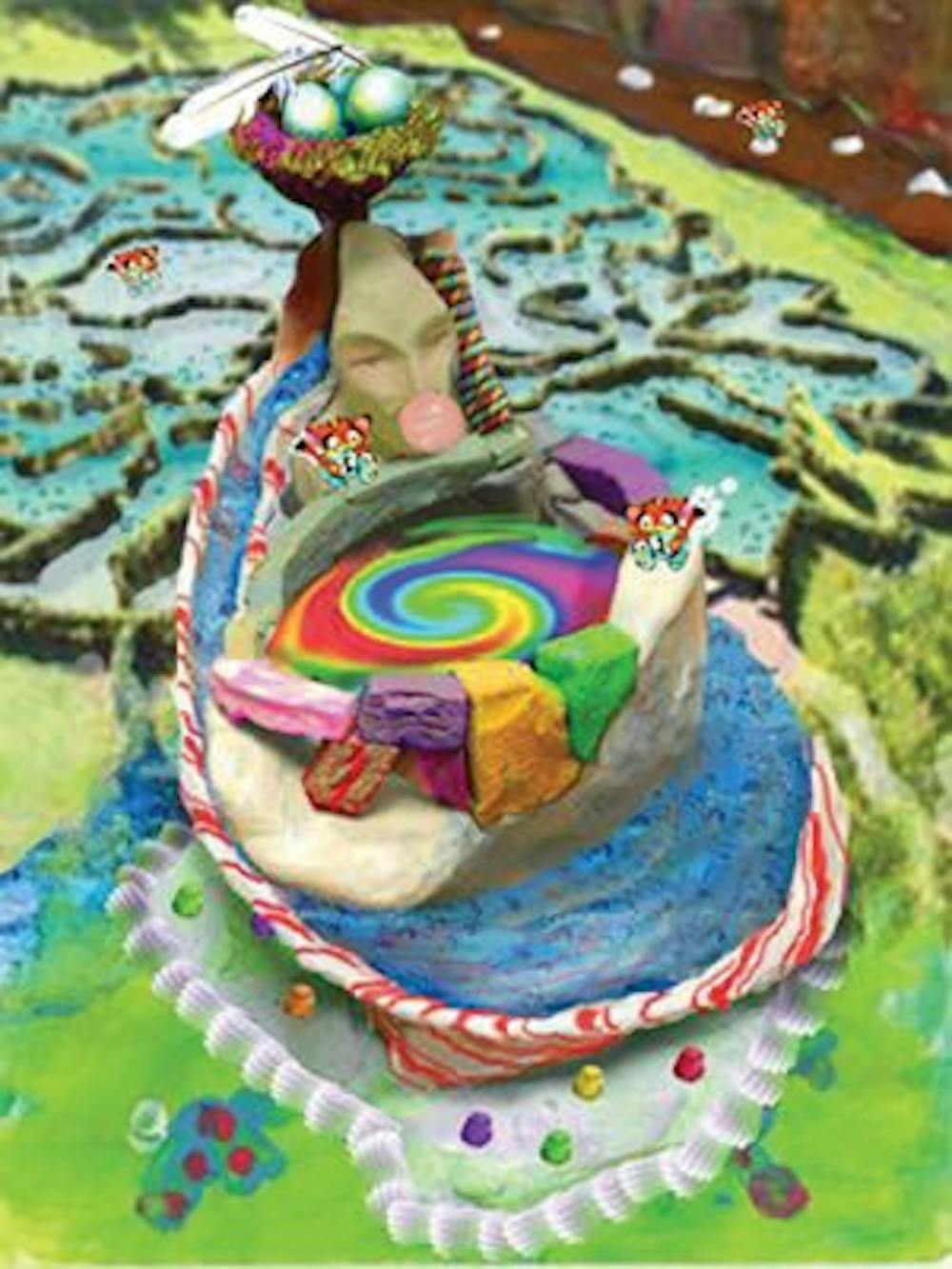You swim through a pool of multicolored Jell-O water, fighting the gooey resistance. Then you sprint up the side of a candy mountain, dodging pink gum bubbles blown from the mouth of a mysterious man etched in stone.
It’s a tough climb, and the sweets in your path are tempting, but you must avoid them to conserve energy. The real food – a nest of protein-filled eggs – is waiting for you at the top. And there you will find wings to take you to your next challenge in Bizarro Olympics.
Three IU students designed Bizarro Olympics, a game intended for the Nintendo Wii, as part of a class and won the student storyboard category of the inaugural Robert Wood Johnson Foundation’s Games for Health Competition. It was their Candy Land-esque creativity that caught the judges’ attention and earned the trio $5,000.
“I knew when it was designed that we won,” said Marco Adorno, who collaborated on the project with Christy Cavanaugh and Aaron Houssian.
The three graduate students took Sonny Kirkley’s Serious Game Design course in the School of Informatics last spring, which required students to enter the competition. The game, which is supposed to teach proper nutrition habits to 8- to 12-year-olds, took the group about three months to design. Adorno sculpted prototype scenes, and Cavanaugh took pictures and layered bright colors on the photos with a computer program.
Since the game is designed for the Wii, players not only get to enjoy the scenery and learn healthy habits, they also get a workout while playing. The fudge rivers and candy paths provide resistance to their actions, which a Wii body pad will track.
“The whole environment interacts with the user – just like life,” Adorno said. “We wanted them to have an experience that reflects life.”
The hardest part of designing the game, Houssian said, was deciding what to leave out. They started with about 10 ideas for themes and narrowed it to one. Then they had to decide which stages of their game to include in their report.
But by the judges’ standards, they made the right decisions. Out of about 10 entries, their’s stood out, the competition’s co-founder, Ben Sawyer said.
“It sort of said to people, ‘Build me, build me, I want to see what this looks like,’” Sawyer said.
Sawyer said he hopes to see more games like this one come through the competition, which will probably become annual. The Robert Wood Johnson Foundation wanted to seek talent that might not be discovered otherwise, so they joined the “prize philanthropy” craze and created the competition to encourage people to try their hand at creating health games, he said.
The foundation, established by the son of the founder of Johnson & Johnson, is the nation’s largest philanthropic health organization and pledges millions to combat childhood obesity, the topic of the IU team’s game.
The game has already attracted the attention of software companies and venture capitalists, Adorno said.
Health games have proven to be a growing industry, Houssian said, citing the success of a game called Re-Mission, which studies have shown increases the likelihood that young people with cancer will adhere to their treatment.
But it takes a while to get funding and to develop games fully, so the team doesn’t know when, if ever, their game will take off.
Regardless, they were excited about winning. With his share of the prize, Houssian said he’s going to attend more gaming conferences.
Kirkley, an adjunct professor in the School of Informatics, is using the win to fuel another class based on a competition.
He said their game was not only aesthetically pleasing, but could help decrease a fast-growing problem.
“The idea is really a fun, innovative environment,” he said. “It’s the kind of thing children would choose to play while learning about health.”






